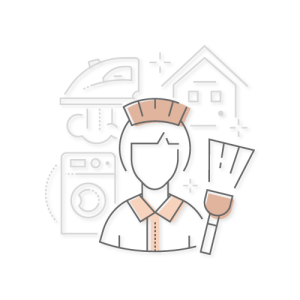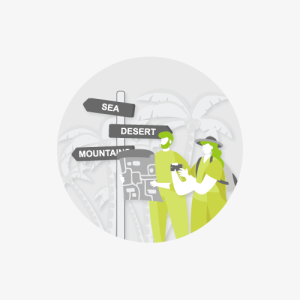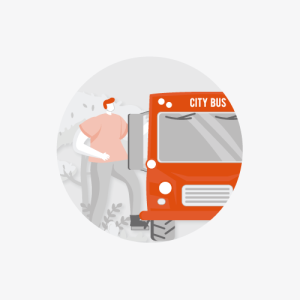
Elder Care Solutions

Some things in life are inevitable, growing old being one of them. The older we become, the more likely we will need others to help us with our daily chores and medical needs. We all hope to have health and independence long into our later years. However, many of the solutions on offer adapt and change with our growing and changing needs. Solutions ensure we maintain our freedom and independence for as long as possible.
Care solutions have been continually evolving. Many more quality providers now offer tailored solutions to a wider range of people. Many are often under-serviced, from all ethnicities, genders and sexual identities. Asking for assistance usually ensures independence and does not reduce it, so let us explore the different types of solutions.
Care solutions have been continually evolving. Many more quality providers now offer tailored solutions to a wider range of people. Many are often under-serviced, from all ethnicities, genders and sexual identities. Asking for assistance usually ensures independence and does not reduce it, so let us explore the different types of solutions.
DISCLAIMER
All of the themes and sections covered within this page are provided free of charge and are designed for information purposes only. None of the subjects featured constitute advice as they do not take into account your personal circumstances. Furthermore, what is available to you will differ, given the many services. The laws relating to elder care and financial matters will vary from country to country. Therefore, you must speak to a specialist to ensure you get the correct solution based on your situation and personal needs

At-home care refers to any support or assistance you may need from the comfort of your own home. For example, this will likely be the property you have lived within for many years, your family home or even one adapted for your needs. The term adapted property refers to homes purchased or rented within retirement villages or apartment complexes.
Any help or assistance you need will come to your home. Services are typically provided by trained and highly skilled individuals and professionals. Whether it is some or all of your meals, cleaning or assistance in bathing you, the services are broad and may even be specialists.
Any help or assistance you need will come to your home. Services are typically provided by trained and highly skilled individuals and professionals. Whether it is some or all of your meals, cleaning or assistance in bathing you, the services are broad and may even be specialists.

The older we become, the more people find daily tasks and chores difficult. Jobs we would have carried out quickly and easily in our youth become problematic, even painful. Though not always born out of necessity, many of these services can also be seen as a luxury. Regardless of the reasons, many within the daily chores section involve using services. Services that help carry out our daily tasks and chores, giving us more time to relax and enjoy our retirement.
Over the past twenty years, many services and how we access them have changed. For example, home shopping, food deliveries, and mobile services are now much more readily available and accessible. Now everything we could ever want can be delivered directly to and from the comfort of our own homes. Though many different types of home delivery services are available, specialist services cater to people who may need additional assistance and attention.
Within the daily chores section, there are many services; however, the main categories are:
Many of these services are readily available to all; however, given most elderly clients will be vulnerable, additional steps will need to apply. Requirements result in many specialist providers’ stringent vetting and training with any staff they employ.
Over the past twenty years, many services and how we access them have changed. For example, home shopping, food deliveries, and mobile services are now much more readily available and accessible. Now everything we could ever want can be delivered directly to and from the comfort of our own homes. Though many different types of home delivery services are available, specialist services cater to people who may need additional assistance and attention.
Within the daily chores section, there are many services; however, the main categories are:
- Meals – freshly made meals delivered not only to the door but also to the table
- Cleaning – providing frequent services in which a cleaner will visit a person’s home, as well as offering services such as carpet and window cleaning
- Laundry – regularly washing and ironing clothes. Pick-up and drop-off services or laundry services are carried out within a person’s home
- Personal grooming – mobile hairdressers and barbers who will visit your home
- Pet assistance – a range of services that might include cleaning out of cages and taking a dog for a walk
Many of these services are readily available to all; however, given most elderly clients will be vulnerable, additional steps will need to apply. Requirements result in many specialist providers’ stringent vetting and training with any staff they employ.
LGBTQIA+ Focus
Though most older people are classified as vulnerable, it is especially true for many from the LGBTQIA+ community. Improving conditions for the community worldwide has resulted in many of the younger generations having the freedom to start their own families. However, the situation is very different for those much older. Some will likely have few or no close friends or relatives near where they live or can help. Without that oversight, there have been occasions where some community members have become victims of abuse or theft. Coupled with ever-changing technological advancement and no way to keep up or be trained, many are often at risk of becoming isolated.
Some suggested practices
It is crucial that you feel comfortable and safe in your own home. Please ensure that you look into and carry out research before employing any services. Should the worse situation happen, reach out immediately for help; there are many people in a similar situation as yourself. Around the world are many tailored LGBTQIA+ organisations, made up of staff and volunteers who care and are ready to help you resolve any problems that you might be facing
Some suggested practices
- Technology training – finding out if training is available in your area or even reaching out to LGBTQIA+ organisations who might be able to assist
- Established services – always using services that are well established and ensuring that a transparent escalation process is in place should problems occur
- Research before employing – invest time in researching services, look them up online, ask people you know who may have used them or ask the company to provide references
- Helplines or local authorities when problems occur – if you feel threatened or coerced in any way, contact any one of the many dedicated LGBTQIA+ helplines or contact the police immediately
It is crucial that you feel comfortable and safe in your own home. Please ensure that you look into and carry out research before employing any services. Should the worse situation happen, reach out immediately for help; there are many people in a similar situation as yourself. Around the world are many tailored LGBTQIA+ organisations, made up of staff and volunteers who care and are ready to help you resolve any problems that you might be facing

The older we all become, the more our bodies begin to slow down. With higher risks of health problems and conditions, looking after ourselves takes time and often requires assistance. From ensuring we take daily medication to help with bathing, many will need aids and outside assistance to keep on top of it all.
From general help to more specialist assistance, staff typically will be required to have completed specific training and have a basic level of medical knowledge. However, of the available solutions, many dedicated care providers and services are experienced in helping people find the right type of care, specialist or otherwise.
In addition to personal care, many automatic and intelligent home devices and WIFI enable dispensers are available on the market. Equipment that reminds someone to take their medication, dispensing all the required medicines when needed at the correct time of day.
With all of the various types of medical support a person may need, let us explore several general and widely known needs:
From general help to more specialist assistance, staff typically will be required to have completed specific training and have a basic level of medical knowledge. However, of the available solutions, many dedicated care providers and services are experienced in helping people find the right type of care, specialist or otherwise.
In addition to personal care, many automatic and intelligent home devices and WIFI enable dispensers are available on the market. Equipment that reminds someone to take their medication, dispensing all the required medicines when needed at the correct time of day.
With all of the various types of medical support a person may need, let us explore several general and widely known needs:
- Monitoring solutions – ranging from cameras designed to monitor and interact with a vulnerable person via the internet to medical alert systems. Ensuring that a person, especially those isolated, are safe and responsive and that emergency services are notified when a medical situation occurs
- Medication – simple pill planning tools for medically trained individuals dispensing daily medicines or injections. In addition, ensuring repeat prescriptions are fulfilled, and drugs are delivered on time
- Live-in Medical Assistance or Carers – using a specialist service to employ a live-in carer or nurse. Using agencies where they are responsible for the assistant. A service where they will recruit and manage the assistant day-to-day. Handling all staffing-related matters, including temporary cover during any planned vacation time or long-term sickness cover
LGBTQIA+ Focus
It is essential, especially when using agencies, to use those tailored to the community’s needs or those with established LGBTQIA+ policies. Policies and training are designed to ensure that those providing the care are respectful and treat those within their care with dignity and respect.
Some suggested practices
Many of these services will be carried out within your home, so you have the right to ensure that you are happy with who is assigned and how they make you feel. Should you feel uncomfortable or unhappy with the way they are treating you. You always have the option to speak to the agency or service provider requesting that an alternative person is provided when administering your care.
Some suggested practices
- Validating policies – ensuring that any services or companies have a code of conduct or procedures in place that outlines accepted practices, anti-discrimination requirements and the overall treatment of LGBTQIA+ clients
- How any technology will be used – understanding how any technology will be used, how secure it will be and how it will be accessed. Finally, understand who will have access to it, especially when installed within your home. Though most of the technology is designed to ensure older people are monitored and protected, you will need to have the option for privacy; on occasion
- Panic buttons and devices – ensure panic buttons are installed and strategically placed in frequently used areas within your home. In areas such as by the front door, bedrooms, bathrooms etc
- Complaint procedures – ensuring you are made aware of the process for reporting any problems or complaints you may have, especially when it comes to agency staff and that anything reported will be handled quickly and discreetly
- Interviews –agencies will often send staff based on your requirements; you will usually have the option to meet potential candidates before their appointment. You may need to request to meet or interview any individuals scheduled or assigned to you before they start. The meet and greet is essential as you need to ensure that you are both a good fit for one another
Many of these services will be carried out within your home, so you have the right to ensure that you are happy with who is assigned and how they make you feel. Should you feel uncomfortable or unhappy with the way they are treating you. You always have the option to speak to the agency or service provider requesting that an alternative person is provided when administering your care.
Discover more about pride in the elder community. Learn about the exceptional individuals that make up this group, from interesting statistics, categories and much more

Most of us take getting around for granted, from the independence of driving your own vehicle to quickly and easily getting on and off public transportation. Many cities worldwide offer incentives and benefits for retirees using public transport, such as discounted or complimentary tickets. However, even with affordable and extensive networks, for some, it can be distressing and restrictive when using public transport.
Many who travel at peak times or rely on transport workers to get on and off often find it embarrassing and demoralising. At the same time, they are forced to watch other travellers’ frustrations at the situation. However, many countries have updated their infrastructure to be more disabled and elderly-friendly. Sadly, even today, many stations and services are still restrictive and difficult to access unless the person is non-disabled and fit. Though some public and private transportation methods might present problems, others can present opportunities; let us the various options further:
Many who travel at peak times or rely on transport workers to get on and off often find it embarrassing and demoralising. At the same time, they are forced to watch other travellers’ frustrations at the situation. However, many countries have updated their infrastructure to be more disabled and elderly-friendly. Sadly, even today, many stations and services are still restrictive and difficult to access unless the person is non-disabled and fit. Though some public and private transportation methods might present problems, others can present opportunities; let us the various options further:
- Driving – in most countries, you can drive well into your later years; however, it depends on the state of your health and eyesight. It is common for many older people to become nervous about driving, especially at night or over long distances
- Buses – depending on the time of day and route, many buses can be busy. Though many are adapted for people with disabilities, those needing assistance may still find it challenging to get on and off. Off-peak travel often being the best and more frequently used period in which older people will use public transport
- Trains / Metros – access to train and metro stations is one of the biggest challenges for people who struggle walking or are disabled. Though the situation is slowly improving, many trains and metros are only accessible via stairs. In Asia, countries such as Singapore and Taiwan have updated their infrastructure to ensure that the entire network is accessible to all
- Taxis / Private Hire – typically one of the most convenient methods of travel where you are not driving yourself. Taxis and private hire vehicles, though convenient, can often be one of the more expensive options. With more taxi companies entering the market using smartphone apps, paying the fare using your bank or credit card is simple, and many offers adapted vehicles that are available to people needing assistance
LGBTQIA+ Focus
Many of the challenges faced by the community are the same for their heterosexual peers. The main difference is the potential treatment and how the transport worker and provider handle them. Though most countries have anti-discrimination laws in place, it does not mean that people always treat community members with respect and without prejudice.
Some suggest practices:
Some suggest practices:
- Establish if your public transport or private hire company has LGBTQIA+ specific policies in place. If they do, all employees must acknowledge or sign off that they have read and understood the company’s position on the treatment of community members. You can often establish if a policy exists by visiting the company’s website or by calling
- For Private Hire / Taxi Companies – do not be worried about explicitly asking whether they are LGBTQIA+ friendly or have LGBTQIA+ policies in place before booking
- If not asked, write in the booking notes or tell the booking agent your preferred pronouns. State that you want the driver to be made aware and request that your preferred pronouns are used when addressing you
- Do not be afraid to complain – even if the provider does not have a policy or code of conduct, they must still comply with anti-discrimination laws. Note of caution, if you are in a country where they are hostile toward the LGBTQIA+ community or where it is illegal to engage in same-sex relationships, you may need to exercise caution concerning discrimination

The older we are, the more challenging daily life and chores can become for many people who remain at home. Getting up and down the stairs, even making a cup of tea, can take a considerable amount of energy and become time-consuming. Though many of these situations are just a reality of age, the good news is that many quality devices and tools are readily available. A wide selection of personal aids have been designed to help us easily carry out many daily chores and tasks.
Smart homes, security, surveillance and adaptive aids have come a long way in the past ten years. Most of these innovations hugely benefit the elder community because they have become easier to use and operate. In addition, many more well-known companies are entering the smart home and adaptive aid space. These and the new entrants to the market have resulted in many of these products becoming more affordable. Not only that, but they are more mainstream, making them freely available and can be purchased online or from one of the many high street retailers.
Let us explore some of these innovations in more detail and how they can help:
Smart homes, security, surveillance and adaptive aids have come a long way in the past ten years. Most of these innovations hugely benefit the elder community because they have become easier to use and operate. In addition, many more well-known companies are entering the smart home and adaptive aid space. These and the new entrants to the market have resulted in many of these products becoming more affordable. Not only that, but they are more mainstream, making them freely available and can be purchased online or from one of the many high street retailers.
Let us explore some of these innovations in more detail and how they can help:
- Virtual assistants – such as Amazon Alexa, Google Home, and any available virtual assistants- offer significant advantages to the elder community. The drop-in facility enables friends and family who might be concerned to dial in and talk without the call having to be answered and to set daily reminders. The virtual assistant can provide daily, even hourly, medication reminders, call family and friends, and even notify emergency services by calling out simple instructions. The assistants are typically easy to set up and use, making them a must-have for many older people
- Smart Homes – linking your virtual assistant to help control your environment. Turning lights on and off controls your home’s temperature and keeps you safe and secure. Nowadays, many devices and functions are WIFI enabled and linked directly to the various virtual assistants. Connecting enabled devices to your assistant means with just a few words, you can close the curtains, check your door camera or turn on the television without having to leave your chair
- Security devices – safety and security are significant concerns for older people, their friends and families. You can scare off any would-be criminals with affordable video intercoms, security cameras, and motion detection devices. Many devices store recordings, typically triggered by motion or someone at your front door. If the unexpected visitor plans to carry out an illegal act or is using intimidation tactics, any video footage recorded can be used with the police in extreme situations
- Accessibility – equipment such as stairlifts, which transport a person up and down the stairs, have been around for many years. Today, there are now many more innovative solutions. Solutions that are not only affordable but can also be eco-friendly. For example, compact lifts use air to transport you between floors to automatic rollers that help wheelchair users navigate ramps without exhausting themselves. There are also many more solutions to get in and out of your home. Whether installing a permanent ramp or using one of the many available adaptive and temporary ramp solutions, all of which all designed to help you get in and out quickly
- Personal aids – from shower seats to grabbers and extenders. Though some of these solutions and aids are simple, they are designed to help people maintain their independence. There are so many great solutions on the market to handle various situations. Commonly found aids are pill organisers and long-handled sponges, inventions that can help you manage your daily life. If you list all of your problem areas or tasks you find challenging, you will likely discover products and aids that can help simply by carrying out some basic research online
LGBTQIA+ Focus
Many of the solutions within this section offer a lifeline, especially to those who live alone or have few friends or family who live locally. Technology can often be daunting; however, reach out to local LGBTQIA+ organisations, many of which will be happy to assist, especially regarding your safety. In addition, many of the solutions are affordable and straightforward to use.
Some suggest practices
Finally, do not be afraid of technology. You could see your independence significantly improve by embracing many of the available solutions. Most of the devices and aids available on the market have all been designed to help you with your daily chores, helping to make your life a little easier.
Some suggest practices
- Get help (if needed) – using many of the available intelligent devices are typically easy to use; however, setting them up might take some time and might be more of a challenge for some. If you want to use devices, but feel intimated by the setup process, do not be afraid to ask for help. Usual routes include speaking to the company’s technical support, friends, family, or local LGBTQIA+ organisations. Most people would be happy to help. If someone is unable to help, do not give up and ask someone else
- Passwords – Change your devices’ default passwords, making them more difficult and complex. Buy a small notebook or use the notes app, which can be found on a smartphone, to keep a log of all the passwords you have used. When using a book, once you have written the passwords down, store them within your safe or somewhere else that is secure
- Internet – invest in a decent and reliable internet service. Not only does it help your smart-home work effectively, but it can also become a lifeline, especially during an emergency
- Video intercom – at a minimum, invest in a video intercom. Suppose it takes you a while to answer the door, or you worry about answering the door to strangers. In these situations, you can speak using the video intercom to find out who is at the door and tell the visitor you are on your way. If the visitor is not expected, you can inform them that you are not interested without opening the door. These types of devices are a huge deterrent to would-be criminals, offering security as well as video footage, all designed to keep you safe
Finally, do not be afraid of technology. You could see your independence significantly improve by embracing many of the available solutions. Most of the devices and aids available on the market have all been designed to help you with your daily chores, helping to make your life a little easier.
GETTING FROM A TO B
When travelling, getting around often takes time and planning. The Gayther travel and transport section features thousands of airports, trains, metro stations, ports and many more modes of transport across the globe. Discover our interactive tool, featuring enhanced airport and metro station listings making it even easier to get from A to B
Learn more about financial terms and life events relating to the elder LGBTQIA+ community
Discover all of the ways to connect to other people from the elder LGBTQIA+ community
Learn more about the types of services available for at-home care and considerations for the LGBTQIA+ community
Discover the various services and facilities available to the elder LGBTQIA+ community
Growing old is inevitable and something we all will face. The older we become, the more likely we will need some form of help and support to perform specific tasks or activities in our daily lives. Though care providers and services will vary by country, many of the problems and challenges faced are universal. From affordability to adaptive solutions, typically, there are many barriers to overcome when it comes to requesting and seeking out care…more
With the number of people aged 65 and over set to double by 2050 and many traditional care services and facilities unable to cater for the needs of the LGBTQIA+ community, what measures and steps can conventional care providers take to become more inclusive? And what would it take for LGBTQIA+ individuals to consider using traditional care facilities and services?…more

Retirement living refers to any support or assistance you might need, provided within an adaptive or assisted live-in environment. These facilities offer various solutions and services, from retirement communities to 24-hour care, often provided within retirement apartments or care homes.
The solutions are typically provided within live-in style facilities, which often cater to your changing wants and needs. The reality is that the older you become, the more help you might need. Most properties within retirement communities or care homes offer a long list of services and facilities. Ultimately, retirement living solutions help you with your long-term care needs.
The solutions are typically provided within live-in style facilities, which often cater to your changing wants and needs. The reality is that the older you become, the more help you might need. Most properties within retirement communities or care homes offer a long list of services and facilities. Ultimately, retirement living solutions help you with your long-term care needs.

As the name indicates, adaptive living is all about your environment and how the services will change and adapt to your needs the older you become. Typically, people will purchase a retirement property before or at retirement. A property that they are buying to move into and live out their retirement and lives.
Adaptive living is about meeting your current and future needs by relocating to communities and facilities where various services, including specialist ones, are widely available. Typically, you will purchase or rent a property, room, apartment or house and pay a regular service fee (weekly, monthly or quarterly). Some available services include an insurance plan to help cover long-term care needs. Thus, purchasing an insurance policy upfront ensures that there are no expensive surprises down the road.
Let us explore some of the adaptive living solutions:
Adaptive living is about meeting your current and future needs by relocating to communities and facilities where various services, including specialist ones, are widely available. Typically, you will purchase or rent a property, room, apartment or house and pay a regular service fee (weekly, monthly or quarterly). Some available services include an insurance plan to help cover long-term care needs. Thus, purchasing an insurance policy upfront ensures that there are no expensive surprises down the road.
Let us explore some of the adaptive living solutions:
- Village / Community – set over acres of land; typically, they offer apartments and houses for people aged 50 and over. The communities will have common or shared areas and include sports facilities, communal dining and onsite medical assistance
- Apartments / Condominiums – though not always an adaptive solution, typically, within this category, they are made up of retirement apartments or condominiums for people aged 50 or older. The property will usually be offered at a discounted rate, and the residents and property owners will live with others who are similarly aged or more senior than them
- Warden Assisted – properties such as apartments or houses close together or within a cluster. Residing within the area will be one or more supervisors. The supervisors will typically have undergone some basic medical training and will be on call to help the residents with their needs
LGBTQIA+ Focus
Adaptive living typically suits many from the LGBTQIA+ community. With more tailored and specialist solutions being developed by care providers, it is a viable solution that caters to most needs. However, though feasible, there are still many barriers for LGBTQIA+ individuals to overcome when thinking of complex or community-living solutions.
Some suggested practices:
Some suggested practices:
- LGBTQIA+ policies – ensuring that the provider or complex has a code of conduct or series of policies relating to how staff and other residents treat members of the LGBTQIA+ community
- References – do not be afraid to ask if other LGBTQIA+ members live within the community, even the overall percentage. If there are none, it is more important to visit before purchasing, meeting the other guests to get a feel for the environment
- Pronouns – start as you mean to go on, state your preferred pronouns and correct people whenever they make a mistake. It will most likely be an honest mistake, but it is an excellent practice to follow from the outset
- Additional Charges – ensure that you understand all of the charges, including any extra or other charges for services and conditions you might need in the future. Look closely at the pre-agreed percentage increases for how much the costs will go up each year. Usually, it will be linked to a recognised pricing index such as the Retail Price Index or the rate of inflation. If the rate of the increase is too high, look into it further and speak to a financial adviser to understand your situation and any potential risks
- Clear Ownership – make sure you clearly understand who owns what, what happens when you sell or die, and exit clauses (if any)

Like adaptive living, assisted living relates more to the facilities and communities where the residents have medical conditions and need specific cognitive care. Those in assisted living facilities or communities will typically purchase an apartment or house and pay a regular fee for their care and any assistance they need right now. The care they receive will range from daily meals to on-call nursing assistance.
Let us explore some of the assisted living solutions:
Let us explore some of the assisted living solutions:
- Without nursing – a community or complex employs staff to help the residents daily. Assistance may come in the form of daily tasks and chores, such as bathing and administering medication
- With nursing – a community or complex will employ, in addition to the general staff, an onsite nurse and even a doctor to support the community. The nurse or nurses will provide medical support and will be on call to help all of the community residents
LGBTQIA+ Focus
Like most people, straight or otherwise, putting yourself out there can be daunting, especially when you are older. We may not have made any new friends for decades. We may also feel there is likely no one out there to connect and create meaningful connections with and long-term relationships.
Years of persecution and fear have resulted in many LGBTQIA+ people becoming adept at hiding who they are from the world. More open and tolerant societies result in many becoming less afraid and looking to meet and make connections with like-minded individuals. Whether you create friends from within the community or those that identify as straight, socialising and joining groups and activities can be a great way of connecting and networking.
Technological advancements and the affordability of devices mean that even bedbound people can talk to people outside their rooms or home. Whether in-person or via video conferencing, they can make friends, discuss how they feel, and talk about current events. For people living in rural, hostile and isolated environments, technology can be a lifeline. A lifeline allows them to speak to and connect to people from other towns and countries via the internet.
If there are very few LGBTQIA+ activities in your area, find out if others would be interested in a particular event if organised. Often, you will be surprised to find out that people in or close to your local area share similar interests and feel the same way you do. Ultimately, if you are feeling lonely and isolated, reach out. Join in and remember that no matter how old you are, someone is out there waiting to connect.
Years of persecution and fear have resulted in many LGBTQIA+ people becoming adept at hiding who they are from the world. More open and tolerant societies result in many becoming less afraid and looking to meet and make connections with like-minded individuals. Whether you create friends from within the community or those that identify as straight, socialising and joining groups and activities can be a great way of connecting and networking.
Technological advancements and the affordability of devices mean that even bedbound people can talk to people outside their rooms or home. Whether in-person or via video conferencing, they can make friends, discuss how they feel, and talk about current events. For people living in rural, hostile and isolated environments, technology can be a lifeline. A lifeline allows them to speak to and connect to people from other towns and countries via the internet.
If there are very few LGBTQIA+ activities in your area, find out if others would be interested in a particular event if organised. Often, you will be surprised to find out that people in or close to your local area share similar interests and feel the same way you do. Ultimately, if you are feeling lonely and isolated, reach out. Join in and remember that no matter how old you are, someone is out there waiting to connect.
The Gayther CPS directory highlights all businesses and services offering inclusive, gay-friendly or tailored LGBTQIA+ eldercare solutions. The directory services include retirement villages, financial organisations and equipment suppliers. Search the CPS directory today

Dedicated living usually refers to a facility, typically a care home, where residents receive around-the-clock care. Usually, residents will have their own rooms with private bathroom facilities. However, meals and group activities are typically carried out within communal areas.
Care homes can range in size and the services offered, from small care homes with under ten residents to larger homes with well over one hundred residents. However, the average number of residents within a care home is typically twenty individuals. Residents with dementia are a common reason many require dedicated care. It is estimated that well over half of all care home residents suffer from the illness. Depending on the facility, dedicated living can offer a wide range of services, including an onsite doctor or nurse to oversee all residents’ medical needs.
Nearly all care homes offer activities and facilities encouraging residents to socialise and interact. For example, many care homes will host activities such as games, and entertainment events, even arranging for groups to sit down to watch television. Care homes will clearly state the services they offer and their capabilities. The wide range on offer means you can easily find care homes that provide extensive services, all from within the single care home setting.
Care homes can range in size and the services offered, from small care homes with under ten residents to larger homes with well over one hundred residents. However, the average number of residents within a care home is typically twenty individuals. Residents with dementia are a common reason many require dedicated care. It is estimated that well over half of all care home residents suffer from the illness. Depending on the facility, dedicated living can offer a wide range of services, including an onsite doctor or nurse to oversee all residents’ medical needs.
Nearly all care homes offer activities and facilities encouraging residents to socialise and interact. For example, many care homes will host activities such as games, and entertainment events, even arranging for groups to sit down to watch television. Care homes will clearly state the services they offer and their capabilities. The wide range on offer means you can easily find care homes that provide extensive services, all from within the single care home setting.
LGBTQIA+ Focus
Dedicated living, especially where it is not tailored to the community or staff that have not been trained in handling community members, will raise concerns for many. From interaction with the other residents to the treatment by the staff members, it can cause many to have anxiety and even hide their gender or sexual identity to blend in.
Some suggested practices:
Some suggested practices:
- Dementia Residents ratio – establishing the number of residents who have dementia. If the home has a high percentage, it is vital to be aware that some residents may struggle to be sensitive to the needs of LGBTQIA+ people. Though it can be upsetting for some, their behaviour is no fault of their own, given their condition. Staff may try to manage the environment and dementia patients; however, it is worth establishing and considering the impact it may have on you
- Do not be afraid to be open – for many older people, telling others about their gender or sexual identity can be challenging. You must be forthcoming, as many facilities are provided in small, intimate communities and homes. If living in a particular home means hiding, who are you? Then it would help if you considered finding an alternative facility, one that is more accepting of you
- Companionship – establish if there are any other LGBTQIA+ residents within the home. Many people within the care settings create close, intimate bonds with the other residents. Even though you may not be looking to develop close relationships, you will still benefit from being around other like-minded people
- Do not be afraid to speak to a staff member or other residents; if you do not feel comfortable or have been mistreated, speak up. If the care facility does not take your complaint seriously, contact an LGBTQIA+ organisation or the local police, especially if it involves mistreatment or where a crime has been committed

Specialist care relates to care providers and services with the skills and expertise to handle particular medical conditions and illnesses. They will understand the needs of residents with various diseases, from dementia care to keeping residents comfortable during their last days (end-of-life care).
The people who provide specialist care will likely have undergone special training or have specific qualifications to work in a given field. The care home and staff will have the experience to handle and manage various situations and conditions to ensure that the residents receive the best care and medical assistance.
The people who provide specialist care will likely have undergone special training or have specific qualifications to work in a given field. The care home and staff will have the experience to handle and manage various situations and conditions to ensure that the residents receive the best care and medical assistance.
LGBTQIA+ Focus
The needs within the specialist care category will typically be similar to those within dedicated living. However, many needing specialist care will likely be more vulnerable and reliant on their carers.
Some suggested practices:
Some suggested practices:
- Specific medications – whether HIV medication or hormone replacement therapy, it is essential to discuss your medical needs before making any commitments; if the care provider or service has limited experience, they may agree to participate in training or hire a specialist (if there is more demand), before your arrival
- Oversight – when entering any care facility, it is important to establish who will provide oversight. Family and friends who may need to make decisions on your behalf, as well as make sure you get the care you deserve
- Demonstrate – If seeking specialist medical care, ask the care provider or service to explain how they react to certain situations. It is an effective way of establishing what to expect
- Get the right service for you – if you cannot get the care you need within your local area, look further afield. If cost is a significant consideration, relocating to a place that caters to your needs and which is affordable can be an excellent option to consider
SMARTPHONE SHORTCUTS & BOOKMARKS
Gayther is a responsive website, which means it is designed to adapt and change to provide the best experience on any device and platform. Add a Gayther shortcut to your smartphone home screen or bookmark a page to access your preferred pages with just one-click
Gayther...your community resources
Three dedicated websites offer various tools, services, guides, and much more. Free tools and services tailored toward all groups within the global LGBTQIA+ community
Quickly find all the information you need when planning a trip. Home to over 600 detailed country and regional guides, including a wide range of general information as well as dedicated LGBTQIA+ specific details
Search over 900 unique weather locations using the fun and interactive weather tool. Discover the best time to travel to a specific area, when is it the hottest, when is the least chance of rain or when it might snow
Planning a trip takes time and effort. Deciding where to go and how to get there can be a challenge. The interactive travel tool is home to thousands of airports, trains, buses and ports worldwide
Gayther Affinity is a private platform for the global LGBTQIA+ community. A space that gives you the freedom to be yourself. Helping you communicate with and connect to people similar to yourself. People from around the world from all age groups and backgrounds. Signup for your free Affinity account today
LGBTQIA+ COUNTRY & REGION GUIDES
With countries around the world treating members of the LGBTQIA+ community differently, planning an overseas trip can be challenging. With over 233 country and 435 regional guides, Gayther guides provide you with all the information you need when planning your trip. From LGBTQIA equality to essential travel information, discover Gayther guides today
The big directory comprises fourteen groups and over one thousand categories, from travel accommodation to home maintenance
There are thousands of events taking place, it is not always easy to know what is going on and when, Gayther can help
The Care Providers and Services directory lists businesses and services that are inclusive and welcoming to all
There are millions of non-profit organisations, advice services, and support groups worldwide, all designed to help you
The RM Directory is designed to showcase organisations and services experienced in assisting those seeking refuge or relocating. Whether a refugee who is forced to leave home due to war or a migrant seeking out better living conditions, the RM Directory can help
Discover more about the extensive tools, services and guides available on Gayther. From country and regional guides to LGBTQIA+ community resources, learn more about all that Gayther has to offer
Planning a trip? Gayther provides extensive country guides for every country across the globe
Find the information you need quickly with the wide range of guides available on Gayther
Be inspired and have some fun, with a wide range of articles, personality tests, quizzes and crosswords on offer
Discover more about sexuality, from the various identities to inspiring content and information
Discover more about the unique and diverse gender identities within the LGBTQIA+ community
Discover more about the special groups and the people and organisations supporting and helping the LGBTQIA+ community
Not sure what you are looking for? There are many ways to find what you need quickly; the search section provides links to the many search services
Impress your friends with key facts and keep updated on the latest developments and trends within the community
Discover Gayther Trinary, three unique services focused on the different aspects and requirements of the LGBTQIA+ community
IMPORTANT DISCLAIMER: The information displayed on this page is for illustrative purposes only and does not constitute advice. It is essential that before travelling that you independently establish information relating specifically to your requirements and circumstances. Though we endeavour to keep all information across the site updated, we do not guarantee the accuracy and completeness of any information displayed. The languages and terms featured on this page are literal translations and have not been validated or verified. The service is provided free of charge, and by using it, you accept that you are doing so at your own risk. This page may contain external links to third party websites; Gayther provides these links for your convenience and does not endorse, warrant or recommend any particular products or services. By clicking on any external links, you will leave Gayther and be taken to the third-party website, which you do so at your own risk and by accessing the site, you will be required to comply with the external third party’s terms and conditions of use and privacy policies













